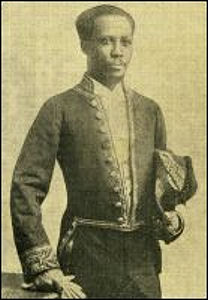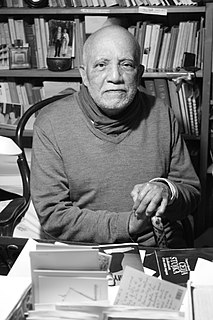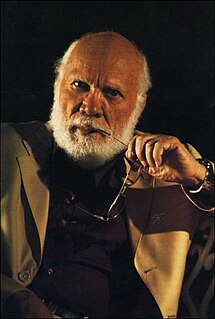 W
WMassillon Coicou was a Haitian poet, novelist, playwright, and politician. Born in Port-au-Prince, Coicou was educated in a Catholic school for boys. He was appointed as the Haitian Chargé d'Affaires Étrangères for the Haitian Republic in France, where several of his works were published. Opposed to the presidency of Pierre Nord Alexis, Coicou publicly announced his intentions to overthrow Nord Alexis' government. He and his two brothers were subsequently executed by the President's orders on the night of 14–15 March 1908.
 W
WLouis-Philippe Dalembert is a Haitian poet and novelist. He writes in both French and Haitian creole. His works have been translated into several languages. He now divides his home between Berlin, Paris and Port-au-Prince.
 W
WRené Depestre is a Haitian poet and former communist activist. He is considered to be one of the most prominent figures in Haitian literature. He lived in Cuba as an exile from the Duvalier regime for many years and was a founder of the Casa de las Américas publishing house. He is best known for his poetry.
 W
WOswald Durand was a Haitian poet and politician, said to be "to Haiti what Shakespeare is to England, and Dante to Italy." He was also a Haitian writer and poet of French and Creole expression, considered as the national poet of Haiti. Besides he was also judged as a Romantic poet and the most prolific one in the nineteen centuries. These 20th-century successors such as René Depestre, and Jacques Roumain congratulated Oswald Durand for his authentic expressions and honored him as a forerunner of Haitian indigenism. He was born in the northern part of Haiti, in the city of Saint-Louis du Nord. In 1842, both his parents died in the earthquake that devastated the city of Cape Haitian. Oswald Durand, and her sister, were welcomed in their maternal grandmother who raised them. He spent most of his childhood outside the city where he was born. Because of political instabilities in Haiti, he was forced to leave school and to educate himself without having recourse to a teacher.
 W
WFrankétienne is a Haitian writer, poet, playwright, painter, musician, activist and intellectual. He is recognized as one of Haiti's leading writers and playwrights of both French and Haitian Creole, and is "known as the father of Haitian letters". As a painter, he is known for his colorful abstract works, often emphasizing the colors blue and red. He was a candidate for the Nobel Prize in Literature in 2009, made a Commander of the Ordre des Arts et Lettres, and was named UNESCO Artist for Peace in 2010.
 W
WJosaphat-Robert Large was a Euro-Haitian-American poet, novelist and art critic. His novel Les terres entourées de larmes [Shore surrounded with tears] won the prestigious Prix littéraire des Caraïbes in 2003. He was nominated for the Haitian grand Literary Prize of 2004, together with Edwidge Danticat, René Depestre, Frankétienne, Gary Klang, Dany Laferrière and Leslie Manigat.
 W
WJean Metellus was a Haitian neurologist, poet, novelist and playwright.
 W
WFélix Morisseau-Leroy, was a Haitian writer who used Haitian Creole to write poetry and plays, the first significant writer to do so. By 1961 he succeeded in having Creole recognized as an official language of Haiti, after expanding its teaching in schools and use in creative literature. Morisseau also published works on French, Haitian Creole and Haitian French literature. He worked internationally, encouraging the development of national literature in post-colonial Ghana and Senegal. In 1981 he settled in Miami, Florida, where he was influential in uniting the Haitian community around Creole and encouraged its study in academia.
 W
WJacques Roumain was a Haitian writer, politician, and advocate of Marxism. He is considered one of the most prominent figures in Haitian literature. The African-American poet, Langston Hughes, translated some of Roumain's works, including Gouverneurs de la Rosée.
 W
WÉmile Roumer was a Haitian poet. Roumer wrote mostly satirical poems and poems dealing with love and nature. Born in Jérémie, he was educated in France before studying business in Manchester, England.
 W
WRodney Saint-Éloi is a Haitian-Canadian poet. He is a two-time nominee for the Governor General's Award for French-language poetry, at the 2013 Governor General's Awards for Jacques Roche, je t'écris cette lettre and at the 2016 Governor General's Awards for Je suis la fille du baobab brûlé.
 W
WGeorges Sylvain (1866–1925) was a Haitian poet, lawyer and diplomat. Born in Puerto Plata, Dominican Republic, Sylvain studied in his native city before attending school in Paris and receiving a law degree. After returning to Haiti, he founded a law school and two periodicals, La Patrie and, in 1922, l'Union Patriotique. He was a member of the literary society La Ronde and was involved in other literary activities. He published Confidences et Mélancolies (1901), a compilation of twenty-nine poems.
 W
WPhilippe Thoby-Marcelin (1904–1975), was a Haitian poet, novelist, journalist, folklorist and politician.
 W
WLyonel Trouillot is a novelist and poet in French and Haitian Creole, a journalist and a professor of French and Creole literature in Port-au-Prince.
 W
WEtzer Vilaire was a Haitian poet and attorney.